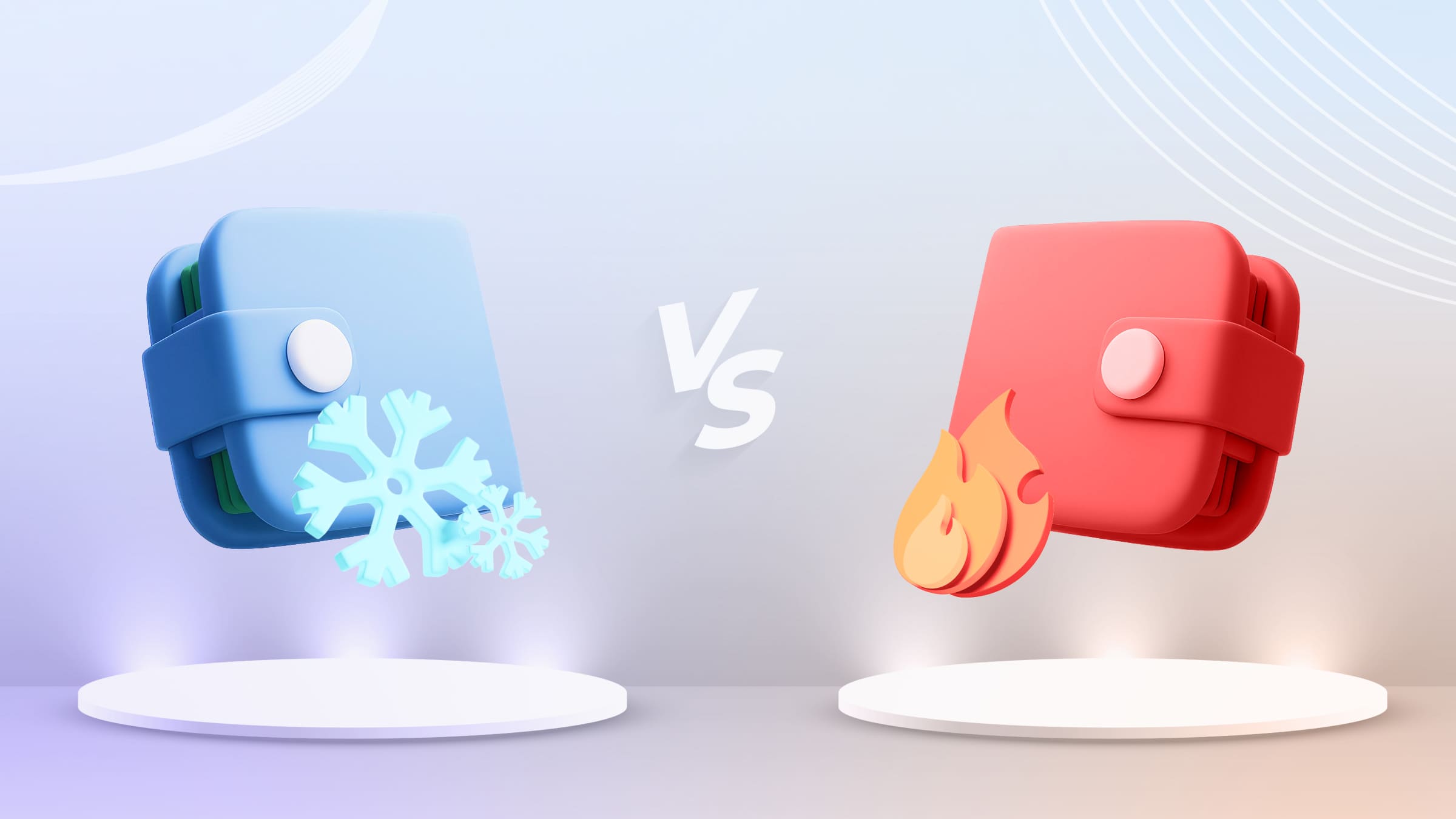Hot Wallets vs Cold Wallets Explained
Crypto wallets are essential tools for managing and securing digital assets, and choosing the best crypto wallet is essential. They come in different forms, primarily hot wallets and cold wallets, each serving unique needs in terms of accessibility, security, and practicality. In this guide, we break down how these wallets work, their advantages and disadvantages, and which type is best for beginners, traders, and long-term holders. We also explore key crypto security tips to help users avoid common mistakes in wallet management.
Table of Contents
- What Are Crypto Wallets?
- Hot Wallets: Features and Benefits
- Cold Wallets: Features and Benefits
- Comparing Advantages and Disadvantages
- Choosing the Right Wallet for Your Needs
- Crypto Security Tips and Best Practices
- Avoiding Common Wallet Mistakes
- Conclusion
What Are Crypto Wallets?
A crypto wallet is a digital or physical tool that stores private keys, allowing users to access and manage their cryptocurrency. While wallets do not hold the actual coins, they provide the interface for interacting with the blockchain. Understanding the differences between hot and cold wallets is crucial for protecting digital wealth and navigating the crypto ecosystem with confidence.
Hot Wallets: Features and Benefits
A hot wallet is connected to the internet, making it highly convenient for daily transactions. These wallets are commonly available as mobile apps, desktop applications, or web-based services. Traders and active investors often prefer hot wallets due to their speed and accessibility.
Advantages of Hot Wallets
- Quick access to funds for trading or spending.
- Easy integration with crypto exchanges and DeFi platforms.
- User-friendly interfaces suitable for beginners.
Disadvantages of Hot Wallets
- Higher vulnerability to hacks and malware due to constant online connectivity.
- Dependence on third-party providers in many cases.
- Risk of losing assets if private keys are exposed.
For further insights into crypto security, consider reading about how decentralized finance is disrupting banking and the importance of protecting your assets.
Cold Wallets: Features and Benefits
A cold wallet, also known as cold storage, is kept offline, making it significantly more secure than hot wallets. Examples include hardware wallets and paper wallets. These options are ideal for long-term holders who prioritize security over convenience.
Advantages of Cold Wallets
- Exceptional protection against online attacks.
- Best option for storing large amounts of crypto over long periods.
- Ownership of private keys remains entirely offline.
Disadvantages of Cold Wallets
- Less convenient for frequent transactions.
- Hardware wallets come with a purchase cost.
- Risk of physical loss or damage if not stored carefully.
Learn more about blockchain technology and how it’s transforming finance at Blockchain and its role in crypto.
Comparing Advantages and Disadvantages
Both hot wallets and cold wallets serve important roles in crypto security. Hot wallets excel in accessibility but expose users to greater risks, while cold wallets deliver unmatched security but reduce convenience. A balanced approach often involves using both: hot wallets for trading and cold wallets for long-term storage.
Choosing the Right Wallet for Your Needs
The best wallet type depends on the user’s profile:
- Beginners: Hot wallets are recommended for ease of use and learning how transactions work.
- Traders: Hot wallets provide fast access to funds, but integrating cold storage for larger reserves is wise.
- Long-term holders: Cold storage remains the gold standard for minimizing risk and ensuring crypto security.
Crypto Security Tips and Best Practices
Protecting digital assets requires adopting proactive security practices:
- Enable two-factor authentication (2FA) on wallet and exchange accounts.
- Regularly back up wallet recovery phrases and store them securely.
- Use hardware wallets for substantial holdings.
- Beware of phishing attempts and fake wallet applications.
- Keep wallet software updated to patch vulnerabilities.
Avoiding Common Wallet Mistakes
Many crypto users lose assets due to simple mistakes. Avoiding these pitfalls is essential for safeguarding funds:
- Never share private keys or seed phrases with anyone.
- Do not store recovery phrases digitally on cloud services or devices vulnerable to hacking.
- Avoid leaving significant amounts of crypto in exchange-hosted wallets.
- Double-check addresses before sending transactions to prevent irreversible errors.
Conclusion
Crypto wallets are the backbone of digital asset management, and choosing between hot and cold storage depends on a user’s goals and risk tolerance. Hot wallets provide accessibility for traders and newcomers, while cold wallets prioritize security for long-term holders. By following best practices and avoiding common mistakes, investors can ensure strong crypto security and build confidence in managing their digital wealth.








